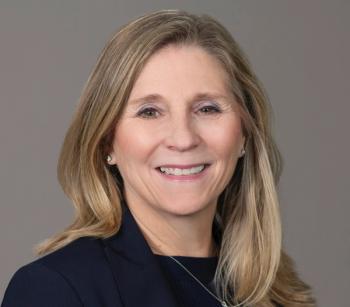
Hospital nurses need a better workplace, and these nursing leaders have ideas
Leaders of top nursing organizations advise health systems on ways they can improve well-being and boost their chances at hiring and keeping good nurses.
Nurses have been asking hospitals for a better work environment, and they say there’s plenty of work to be done.
In recent weeks, Chief Healthcare Executive® spoke with leaders from four organizations representing nurses: the American Association of Critical-Care Nurses, the American Nurses Association, the American Organization for Nursing Leadership, and the Emergency Nurses Association.
In this video, nursing leaders share ideas on how hospitals can help their nurses. They offer ideas on improving the work environment in hospitals, and how that will help them keep good nurses. Hospitals who show they are taking care of their nurses will also have more success in recruiting new nurses, they say.
Here are some excerpts from the nursing leaders. See more in our
Jennifer Mensik Kennedy, president of the American Nurses Association
“When we have better staffing, and I know that's just tough, we have some looming Medicaid cuts and uncertainties in the world. But when we staff, that allows nurses to be able to be given the time to do surveillance right, and to be watching the environment, spending time with people.”
“Patients are frustrated and they are very stressed out about what's going on in the world. Their nurse may not have time to sit and listen to them, so giving nurses the time that they need to spend with patients, I think that will drastically also reduce those incidences, because patients feel heard, patients will feel taken care of, and nurses will know that they're providing better care.
“Because it's not just about passing medications or fixing a bandage, right? It's about listening and sitting there and being there for people.”
Vicki Good, chief clinical officer of the American Association of Critical-Care Nurses
“Our focus continues to be on the work environment, and what we're seeing is that nurses are still very focused on that.”
“I think there's a desperate cry out there from not only frontline nurses, but the nurse leaders … help me figure out how to address the trauma that the work environment is causing. And so how do we, how do we focus on that?
“So that continues to be our biggest focus. Because no matter what's going on around you, if you can address the work environment that people are working in, you're going to be ahead of the game. Because at the end of the day, if I'm happy when I go into my work environment and I'm going into one that's healthy, I'm going to have better satisfaction. I'm going to have better perception of care.”
Ryan Oglesby, president of the Emergency Nurses Association
“In most hospitals, 80 to 90% of all admissions come through the emergency department. So that experience there in the emergency department can have a meaningful and measurable impact on the entire community and how the hospital is perceived as a whole.
“So I think highlighting the importance of the emergency department being that front door of the facility and and again, that's where the quality of care, that's where the patient experience, that's where all of those key indicators of a good quality facility starts.”
“Having zero tolerance policies around violence, supporting emergency nurses when there has been violence, advocating for adequate staffing in our emergency departments, bringing in inpatient nursing staff when we are holding patients in the emergency department, caring for those patients in the emergency department that really no longer belong to the emergency department, if you will. And then again, continue to invest in education and training for nurses, all nurses, but specifically for emergency nurses.”
Claire Zangerle, CEO of the American Organization for Nursing Leadership
“First and foremost, make sure that you are market competitive with your compensation. That is table stakes. If you're not market competitive, then you don't even get to play the game. So you have to stay market competitive.
“The next thing I would say is listen to your staff. There's a reason you do employee engagement surveys. Act upon the results of the employee engagement surveys because they're telling you what they need, what they want, and why they're there, and act upon those. Have an action plan around those, because doing what your employees say they need is what's going to retain who you have. And then it's going to attract people to come to your organization, because they're going to feel like they're listened to. And if you can't do what they're asking, communicate that.”
“Meet them where they are in terms of schedule, and demonstrate that you hear them and their need for flexibility, and demonstrate that in your scheduling process.”






















































































